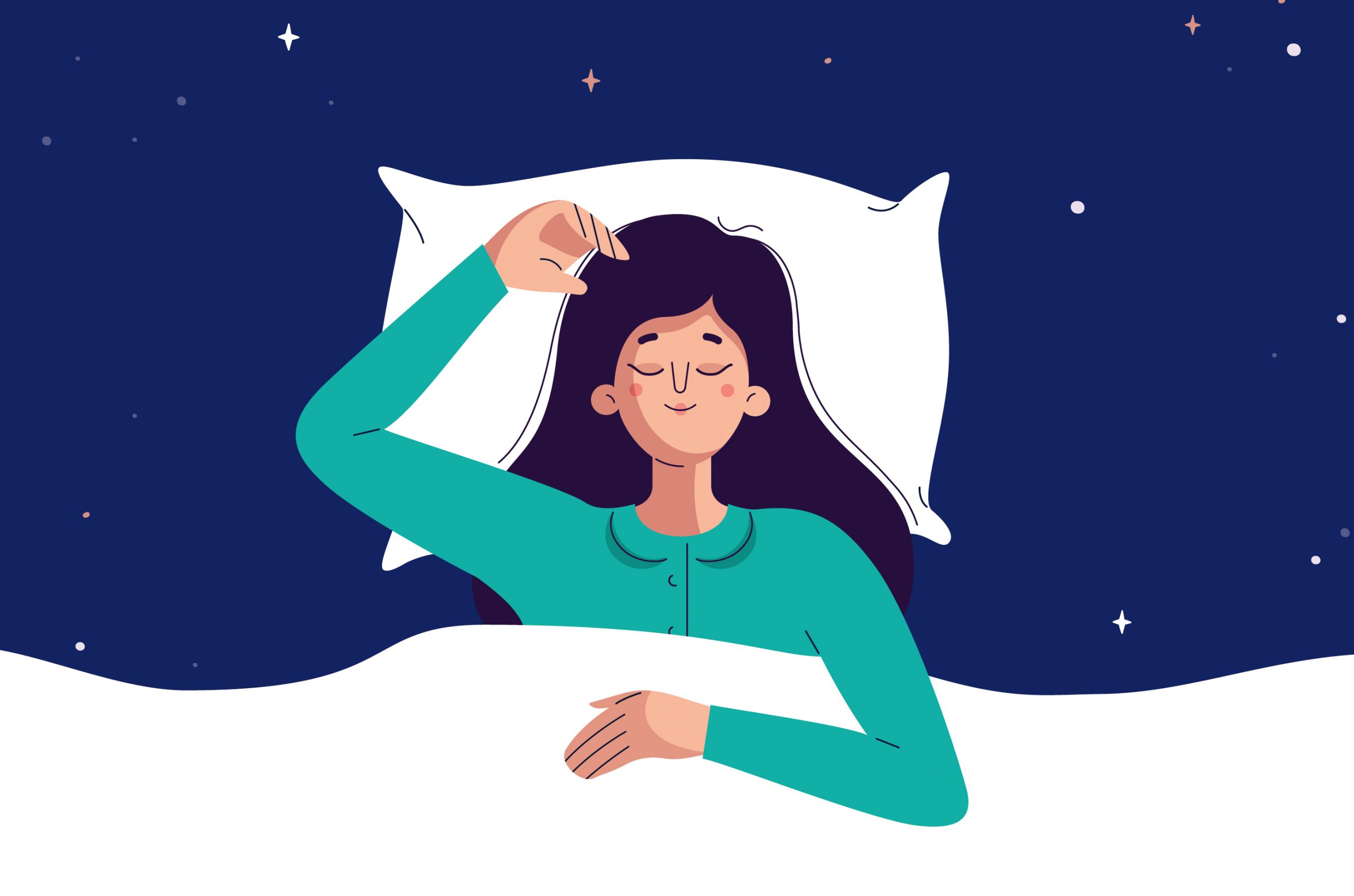Sleep plays an important role for every process in our body. Regular sleep affects physical and mental function, helps our immune system, impacts our metabolism and lowers our risk for chronic illness. But it’s also something that can be elusive for many people. We’ve got some tips to help you stop tossing and turning, so you can sleep soundly every night.
How much sleep should you be getting?
Healthy adults need between seven and nine hours of sleep a night. The same is true of people over 65. Babies, kids and teens need more sleep to help ensure their healthy growth. Newborns should spend 14 to 17 hours sleeping every day. Including naps, toddlers should get 11 to 14 hours. Preschool-aged children should get ten to 13 hours, and elementary and middle school students should be sleeping for nine to 12 hours. Teens should get at least eight hours each night.
When are the best times to sleep?
According to the Cleveland Clinic, research in the U.K. has shown that 10 p.m. is the optimal time to go to sleep. However, more important than what the clock says is having a consistent routine. Going to bed and waking up at the same time will help you sleep better. Other aspects of your routine, like eating dinner at the same time, can help you fall asleep as well. It all comes down to your circadian rhythm—the internal clock that regulates sleep. When the sun goes down, your brain releases melatonin, which in turn triggers other neurochemicals that get you ready for sleep. Our circadian rhythm also affects our hormones, immune system and digestion. If one system is thrown off, all of your body’s internal clocks may fall out of rhythm.
Are there steps you can take to improve your sleep?
- Along with keeping a regular routine, taking a small dose of melatonin can help you fall asleep. It can reset your brain to start preparing to sleep—just like what naturally occurs when the sun goes down.
- Opt for an instant-release supplement because it better reflects the regular release of melatonin in the evening.
- Drink less caffeine and alcohol in the evening. Avoid tea, coffee or soda before bed because caffeine acts as a stimulant, and studies have shown it can disrupt your circadian rhythm. While the common belief may be that alcohol puts you to sleep, the truth is it can lead to disruptive sleep, especially when consumed in excess. Nicotine also can impact sleep.
- Think about what you eat and when. Don’t go to bed too hungry or too full since discomfort may keep you up.
- Make sure you stay active. Physical activity promotes better sleep. Although, it should not be done too close to bedtime.
- Limit your use of light-emitting screens before going to bed. In the evenings, exposure to light can make it difficult to fall asleep.
- Turn your bedroom into a restful environment. Your room should be dark, cool and quiet. A fan, ear plugs and light-dampening shades all can be beneficial.
- Keeping a sleep journal will help you see your patterns. If you’re not getting enough sleep, you can share it with your doctor to work on finding a solution that works for you. Journaling also can help you manage stress, which could be impacting your sleep. Write down what’s on your mind and then set it aside for the next day.
Do naps disrupt your sleep cycle?
Naps are not inherently bad for your sleep schedule. However, the longer the nap is, the more likely it is to lead to a disordered sleeping pattern. A nap should not be longer than half an hour, and research has shown that even just ten minutes can be beneficial. The longer you nap, the groggier you are going to feel when you wake up. Make sure you give yourself some time to wake up before getting back to your day. The time of day also impacts how disruptive a nap is. Most experts recommend napping no later than 2 p.m., otherwise it may impact your nighttime sleep. It’s important to consider your own regular schedule. If you work nights, a later afternoon nap may be necessary to stay alert during your shift.
Sources: CDC, Cleveland Clinic, Mayo Clinic, Sleep Foundation








